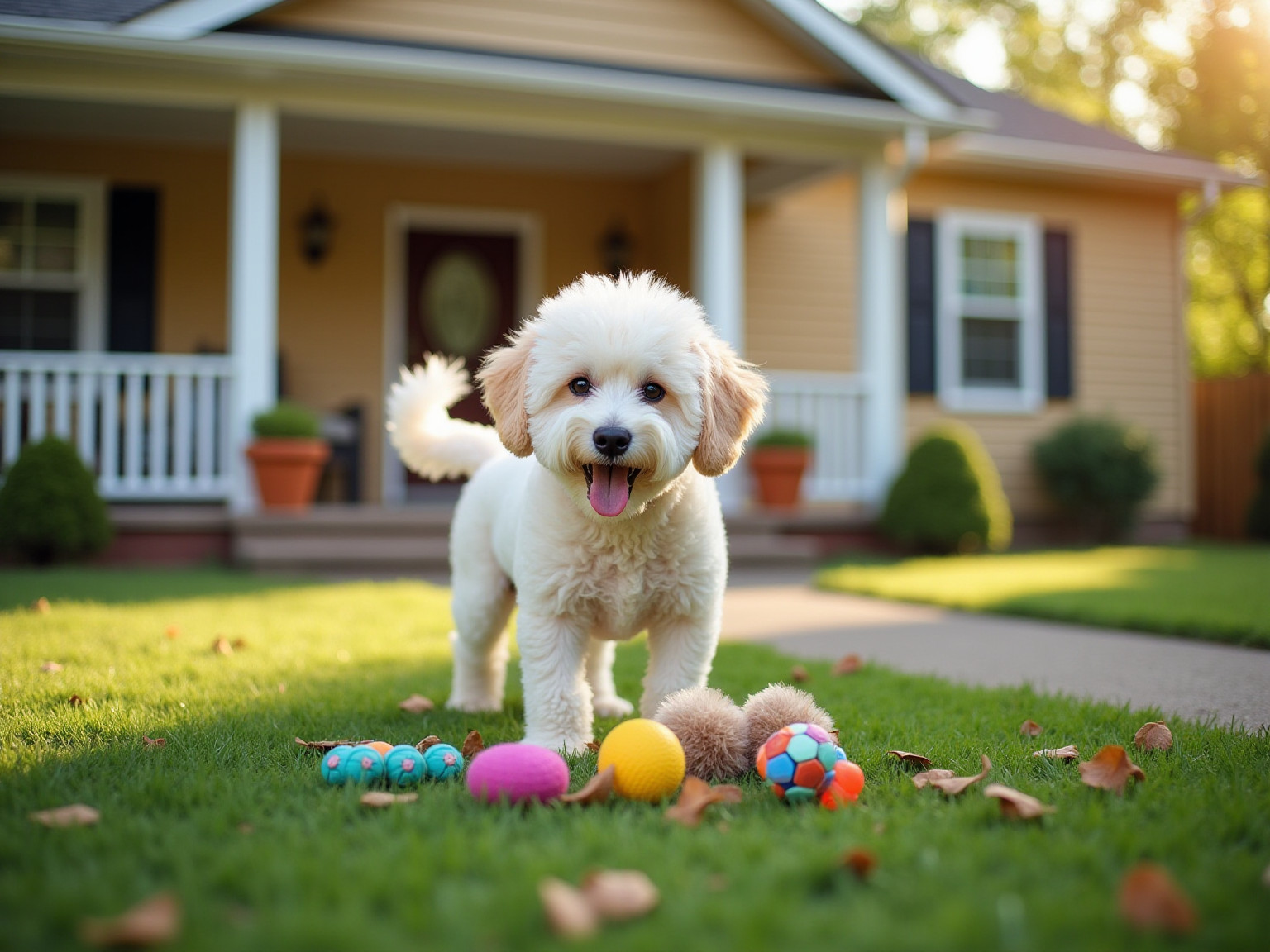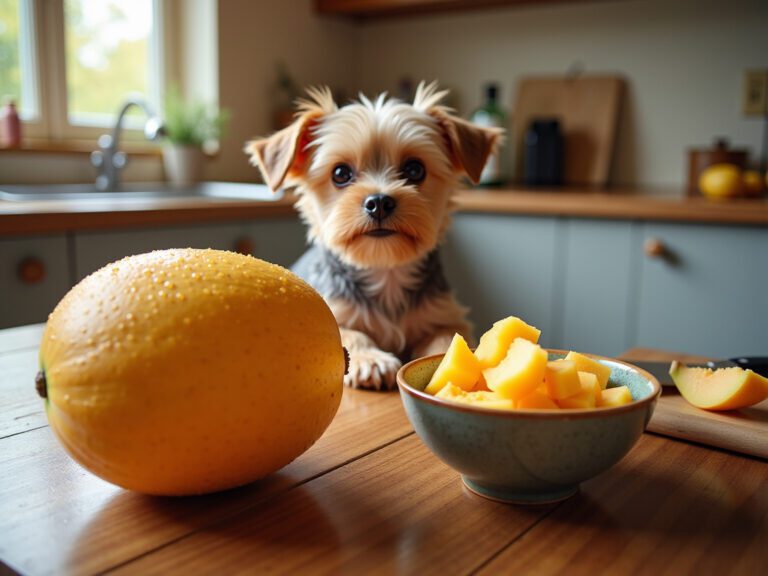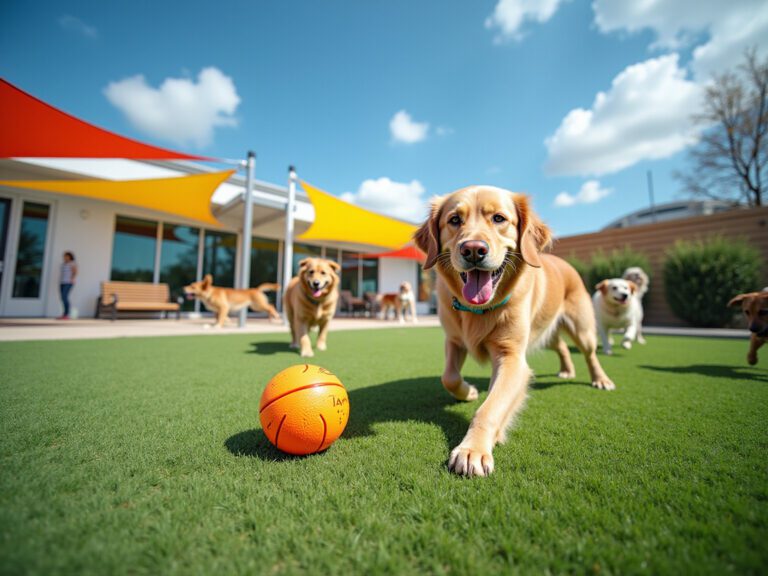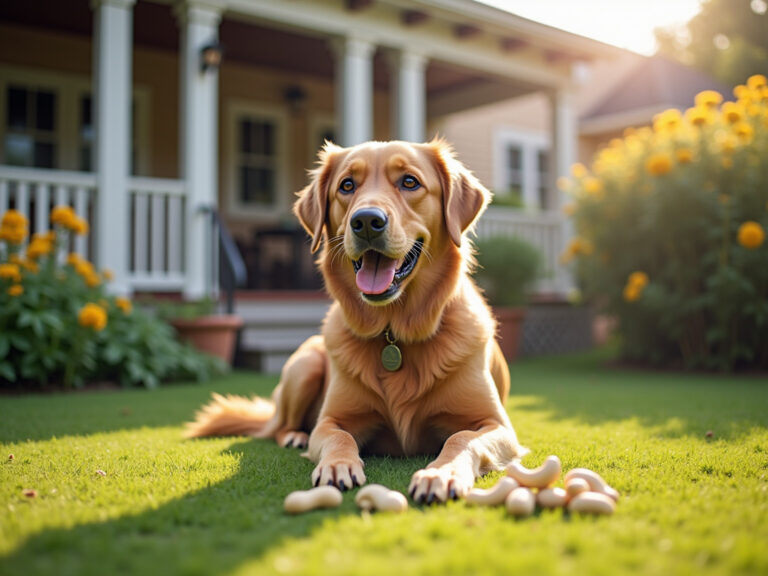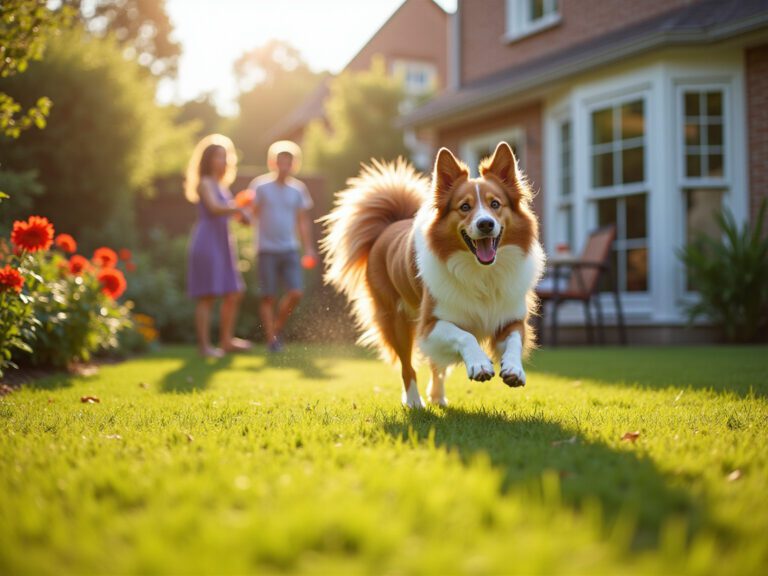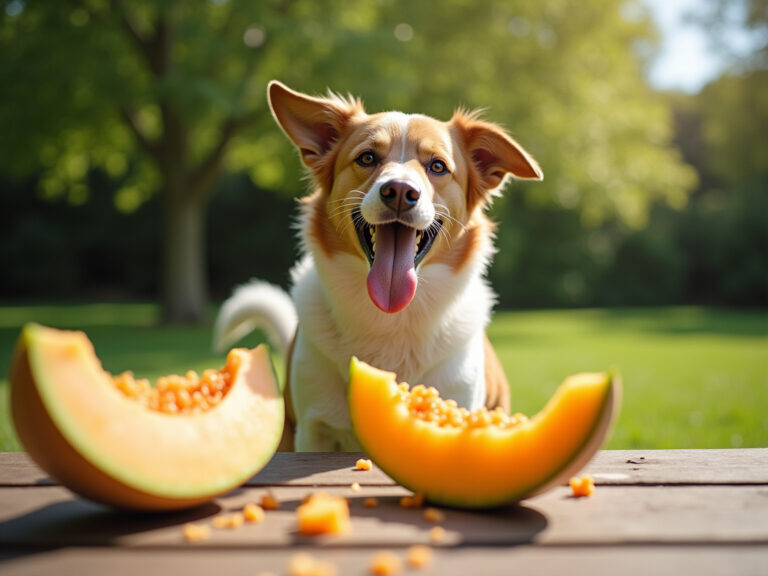Master Bichon Poodle Training Techniques for Success
Overview
This article highlights effective training techniques for bichon poodles, acknowledging the deep bond pet owners share with their furry family members. It emphasizes the importance of positive reinforcement, consistency, and engaging training sessions, offering reassurance to those concerned about their pet’s learning journey.
To foster a nurturing environment, the article details methods such as using treats and toys as rewards, which not only motivate your pet but also strengthen your relationship. Keeping training sessions brief helps maintain focus, ensuring that your bichon poodle remains engaged and eager to learn.
It also addresses common challenges like stubbornness and separation anxiety, providing compassionate solutions that can ease both the pet’s and owner’s worries. By implementing these techniques, you can create a loving atmosphere that encourages growth and connection between you and your dog.
Ultimately, this guidance aims to empower you to take action, fostering a positive training experience that nurtures your bichon poodle’s development and deepens your bond.
Introduction
The Bichon Poodle, a delightful fusion of the Bichon Frise and Poodle, enchants dog lovers with its affectionate nature and playful demeanor. Weighing between 6 to 17 pounds and standing about 9 to 15 inches tall, these intelligent companions are not only highly trainable but also thrive on ample social interaction. However, their stubbornness can present challenges during training, making it essential for owners to recognize their unique traits and needs.
In this article, we will explore:
- Effective training techniques
- Common obstacles
- The importance of consistent reinforcement
Our goal is to empower Bichon Poodle owners to nurture a strong bond with their furry family members while ensuring they receive the care and attention they truly deserve.
Understand the Bichon Poodle Breed Characteristics
Bichon poodles, which are a delightful mix of Frise and Poodle, are beloved for their friendly and affectionate nature. Weighing between 6 to 17 pounds and standing about 9 to 15 inches tall, these charming dogs are not only intelligent but also eager to please, making them highly trainable. However, without proper motivation, they may show a bit of stubbornness.
Understanding the playful spirit and social needs of bichon poodles is crucial; these dogs thrive on interaction and can feel anxious if left alone for too long.
At Adventure Den, Vancouver’s premier dog daycare and boarding facility, we are dedicated to offering personalized care and a nurturing environment for your furry family members. Our engaging play areas and advanced safety features ensure that your pet receives the attention and interaction they crave.
Additionally, the bichon poodle’s hypoallergenic coat requires consistent grooming, which can be a wonderful bonding experience during practice sessions. Recognizing these unique characteristics will empower you to create a training plan that resonates with your bichon poodle’s personality traits.
Our compassionate team at Adventure Den is here to support you every step of the way, ensuring your beloved pet enjoys a fulfilling and happy experience with us.
Implement Effective Training Techniques for Bichon Poodles
To successfully train your bichon poodle, start with positive reinforcement techniques that strengthen your bond. Use treats, praise, and toys to reward the behaviors you want to see. Start with fundamental commands like ‘sit,’ ‘stay,’ and ‘come.’ Keep those exercise sessions brief and enjoyable—ideally around 5-10 minutes—to help your furry friend stay focused and engaged. Incorporate play into these exercises to enhance the fun; for instance, use a favorite toy as a reward for completing a task.
Consistency is key in this nurturing journey. Ensure that all family members use the same cues and rewards to avoid confusing your beloved pet. As your dog masters the basics, gradually increase the challenge of the commands. Always conclude each session on a positive note, leaving your pup excited for the next practice. Remember, training your bichon poodle is not just about commands; it’s about building a trusting and loving relationship with your furry family member.
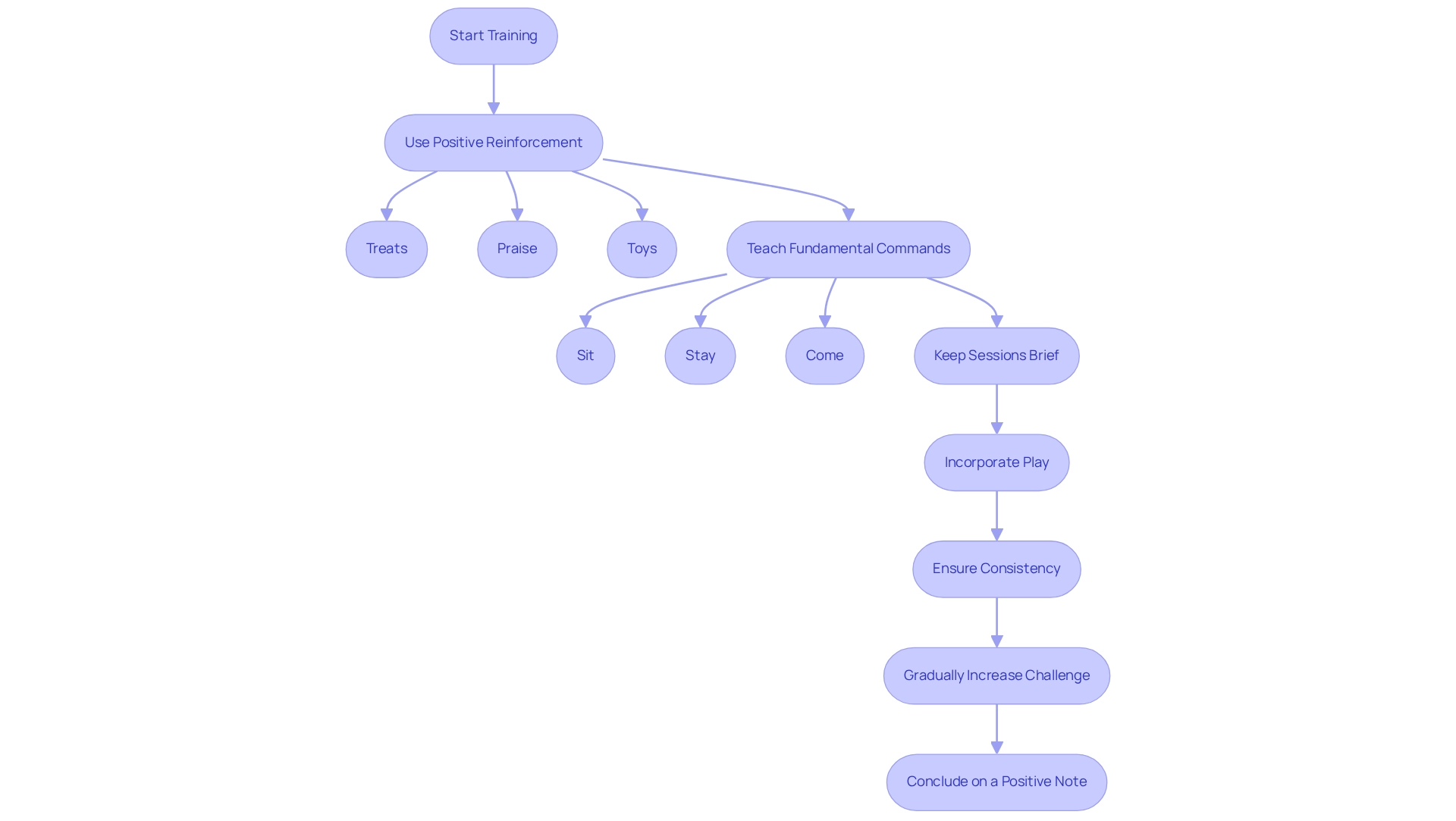
Overcome Common Training Challenges
Training your Poodle can present challenges, such as stubbornness or distractions that may leave you feeling overwhelmed. If your furry family member seems disinterested in lessons, consider varying your rewards—some dogs may respond better to toys than treats. Should your Poodle bark excessively, gently redirect their attention with a command or a toy, helping them refocus.
For those housebreaking concerns, establishing a consistent timetable for bathroom breaks is essential. Reward your dog immediately after they go outside, reinforcing positive behavior. If your dog struggles with separation anxiety, gradually increasing the time they spend alone can help them adjust to being without you.
Remember, patience and consistency are key in this nurturing journey. Celebrate those small victories along the way, as they will keep both you and your Poodle motivated. Together, you can create a loving environment that fosters growth and understanding.
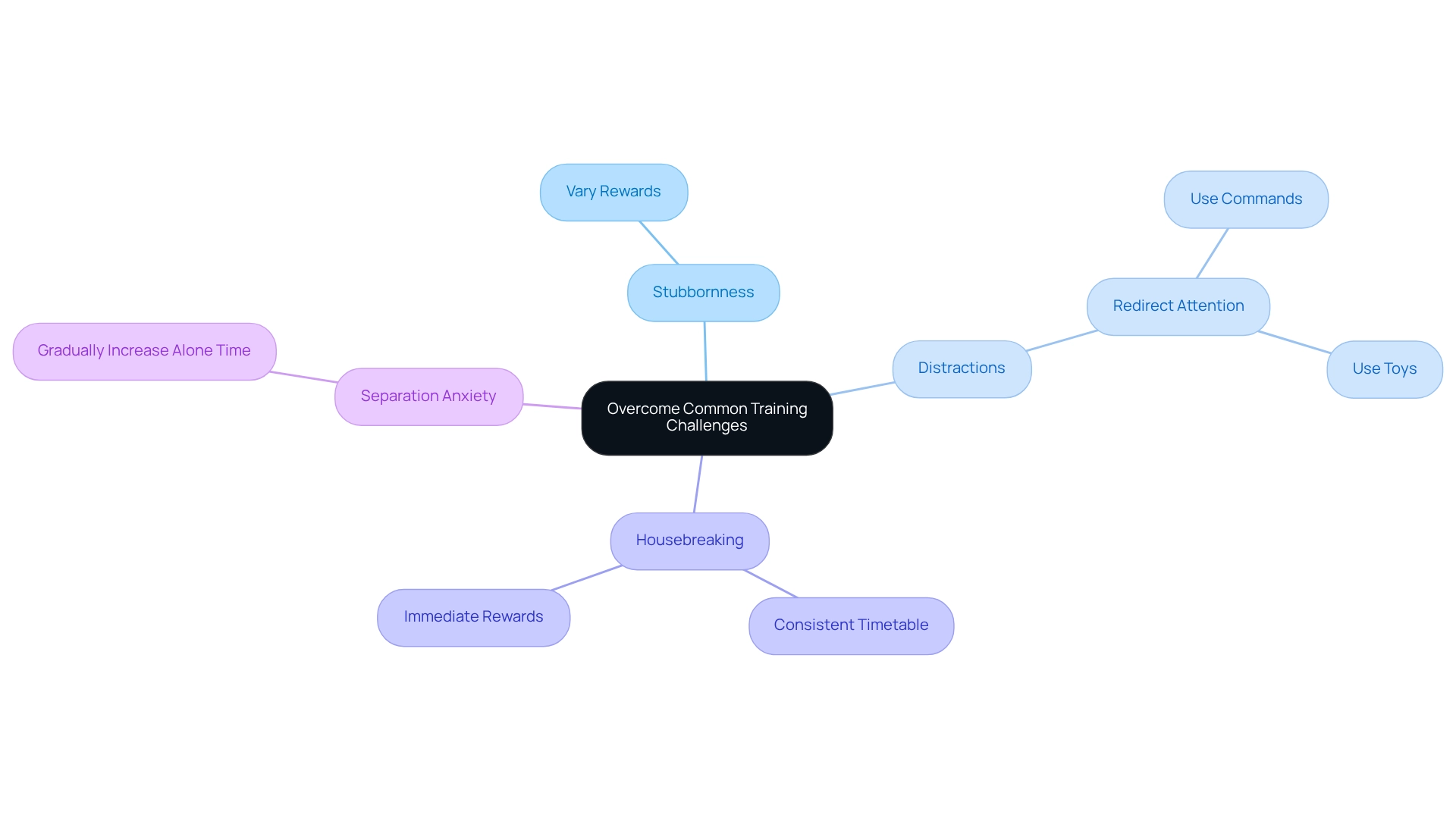
Maintain Training Progress and Reinforcement Strategies
To help your furry family member thrive, it’s essential to weave regular practice into your daily routine with the Bichon Poodle. Remember, short and frequent practice sessions are far more effective than long, infrequent ones. Consider keeping a training log to track your dog’s progress, allowing you to identify areas that may need a little extra love and attention. Consistently reinforcing good behavior is key, even after your dog has mastered a cue. This can be as simple as offering occasional treats or heartfelt praise for following commands in various environments.
Engaging your dog in new activities, like agility training or interactive games, can keep their mind stimulated while reinforcing their training in delightful ways. Regular socialization with other dogs and people is equally important, as it helps nurture good behavior and adaptability. By incorporating these practices, you create a nurturing environment that supports the development and happiness of your bichon poodle. Let’s embark on this journey together, ensuring your beloved pet flourishes every step of the way.
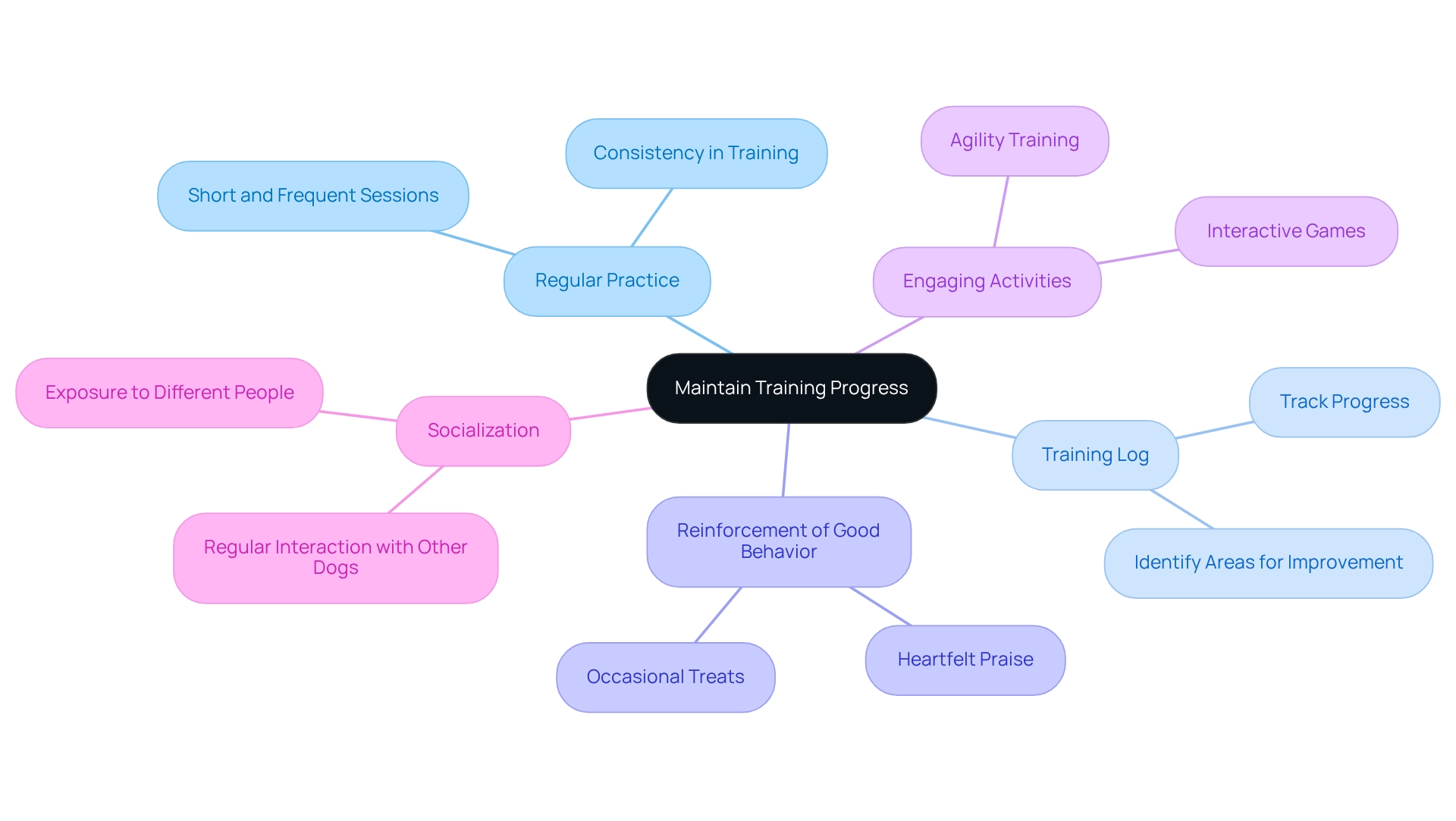
Conclusion
Understanding the unique characteristics and training needs of your furry family members, Bichon Poodles, is essential for fostering a strong bond between you and your beloved companions. These affectionate dogs thrive on social interaction and require consistent training techniques that emphasize positive reinforcement. By implementing effective strategies such as short, engaging sessions and varied rewards, you can overcome common challenges like stubbornness and distractions.
Maintaining training progress is equally important. Incorporating regular practice into your daily routines, tracking advancements, and engaging in new activities will not only reinforce learned commands but also keep your dog’s mind stimulated. With patience and dedication, Bichon Poodle owners can nurture happy, well-adjusted pets that embody the playful spirit and loving nature of this delightful breed.
Ultimately, the journey of training a Bichon Poodle is a rewarding experience that deepens the connection between you and your pet. By recognizing their unique traits and needs, and consistently applying effective training techniques, you can ensure your Bichon Poodles lead fulfilling lives filled with joy and companionship. Embrace this journey, and watch as your bond flourishes in a nurturing environment.
Frequently Asked Questions
What are Bichon Poodles?
Bichon Poodles are a mix of Bichon Frise and Poodle, known for their friendly and affectionate nature.
What is the size and weight range of Bichon Poodles?
Bichon Poodles typically weigh between 6 to 17 pounds and stand about 9 to 15 inches tall.
How trainable are Bichon Poodles?
Bichon Poodles are intelligent and eager to please, making them highly trainable; however, they may exhibit stubbornness without proper motivation.
What are the social needs of Bichon Poodles?
Bichon Poodles thrive on interaction and can feel anxious if left alone for too long, highlighting their need for social engagement.
How can Adventure Den assist with Bichon Poodles?
Adventure Den, a dog daycare and boarding facility in Vancouver, offers personalized care, engaging play areas, and advanced safety features to ensure pets receive the attention and interaction they need.
What grooming needs do Bichon Poodles have?
Bichon Poodles have a hypoallergenic coat that requires consistent grooming, which can also serve as a bonding experience between the pet and owner.
How can I create a training plan for my Bichon Poodle?
Understanding the unique characteristics of Bichon Poodles will help you create a training plan that resonates with their personality traits.

